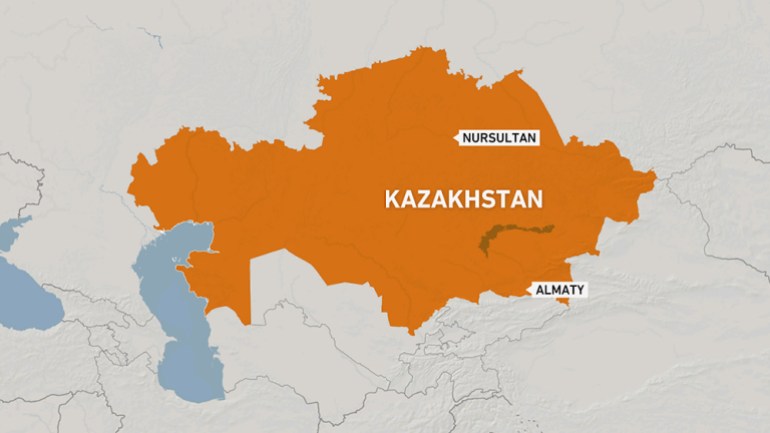Kazakhstan’s president vows ‘robust’ response to protests | Protests News
Tokayev says unrest threatens national security in televised address as concerns mount over reported internet blackout.
Kazakhstan’s President Kassym-Jomart Tokayev has promised to act “robustly” in response to nationwide protests prompted by a sharp rise in fuel prices, as he took over as head of the country’s Security Council.
Tokayev’s remarks, delivered in a televised address to the nation on Wednesday, came as the worst unrest for more than a decade shocked the vast Central Asian nation.
He said there had been casualties among security forces during four days of demonstrations which began at the weekend in the town of Zhanaozen, in the oil-rich western Mangystau region, after price caps on liquefied petroleum gas (LPG) were lifted.
More than 200 people have been arrested nationwide in connection with the protests, which have since spread to a number of other towns and several cities.
Tokayev said he would not leave the country despite the widespread show of public anger, committing instead to remaining in the capital city of Nur-Sultan, where a state of emergency has been declared.
“This is a matter of the security of our state. I am confident the people will support me,” he said, before pledging to come forward with unspecified proposals for the “political transformation” in the “near future”.
A total shutdown of Internet in Kazakhstan now. It’s obviously getting serious. https://t.co/arf2pxAJgE
— Carl Bildt (@carlbildt) January 5, 2022
A state of emergency has also been declared in the country’s largest city Almaty, where earlier on Wednesday protesters stormed the local mayor’s office and appeared to have seized control of the building.
The developments in Almaty came after Tokayev, who blamed “financially-motivated conspirators” of fomenting the protests, sacked Kazakhstan’s government in an apparent bid to assuage those taking to the streets.
Tokayev also ordered the reinstation of price controls on LPG, and for caps to be applied to gasoline, diesel and other “socially important” consumer goods in the former Soviet republic.
Meanwhile, authorities appeared to have shut the internet off as the unrest spread, with connectivity levels plunged to nearly zero across the country, according to global internet monitoring group Netblocks.
“Kazakhstan is now in the midst of a nation-scale internet blackout after a day of mobile internet disruptions and partial restrictions,” the NetBlocks monitor tweeted. “The incident is likely to severely limit coverage of escalating anti-government protests.”
⚠️ Confirmed: #Kazakhstan is now in the midst of a nation-scale internet blackout after a day of mobile internet disruptions and partial restrictions.
The incident is likely to severely limit coverage of escalating anti-government protests.
📰 Report: https://t.co/Op5GwzXKbh pic.twitter.com/pdHJkJFe7v
— NetBlocks (@netblocks) January 5, 2022
Major test for Tokayev
Kazakhstan is tightly controlled and cultivates an image of political stability, helping it attract hundreds of billions of dollars of foreign investment in its oil and metals industries.
Public protests are rare in the country, whose parliament is devoid of opposition, and deemed illegal unless their organisers file a notice in advance.
The unrest is the biggest test yet of Tokayev, 68, who took office in 2019 as the hand-picked successor to former leader Nursultan Nazarbayev, who held power for three decades.
The situation has also provoked alarm in the wider region, with Kazakhstan’s close ally Russia saying on Wednesday that it expected the country to quickly resolve its internal problems. Moscow, which is acutely sensitive to unrest in former Soviet republics it regards as part of its sphere of influence, also warned other countries against interfering in the situation.

